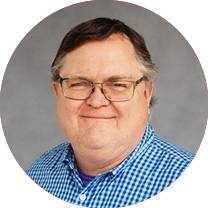Langi brings both life and work experience to the role.
The backstory
Langi said he grew up in different places, as his father’s work in the Army took the family all over the country and across oceans.
He did his undergraduate work at Brigham Young University, receiving his degree in sociology before earning his master’s degree in public administration from the University of North Texas. He did a two-year mission trip in New York City with The Church of Jesus Christ of Latter-day Saints.
Prior to joining the city of Roanoke, Langi worked as an economic development specialist in Keller for a little under five years.
“The process of local government was new to me, so prior to that I was in business development for 10 years, having worked for a few different startups based in Salt Lake City,” he said. “My wife and I owned a health care franchise in North Dallas for a little while before I went back to grad school, so I have always been familiar the small-business side of things—growth and strategy, and all the sales and marketing that you have to do when you’re trying to get something off the ground.”
His experience in Keller was “eye-opening,” he said, in allowing him to see what happens from the city perspective and all of the steps that businesses need to go through, and what city hall can do to help them through that process.
The interview has been edited for clarity and length.
What excites you about Roanoke, about coming here and working here?
I think the location itself is one thing that lends itself to a lot of exciting growth. There are a lot of developers looking to position themselves in the area. Our proximity and our relationship to all of the Alliance projects and how that affects us is exciting—seeing their growth and their influence in the region, all the economy that is driven by that. So I think learning not only from our team here in Roanoke but our relationship with the Metroport Chamber and our neighboring municipalities, seeing how there is a strength to working together as a region—it’s been really exciting to step into this role.
What do you do in your role as the economic development director?
As far as economic development in the city of Roanoke, a lot of it is identifying what council’s vision is as far as development of Oak Street and what that means. We have opportunities with our empty parcels [of land] and seeing what might fit. So working through the recruitment and attraction component but also identifying there are properties that are right for redevelopment. Seeing what opportunities are there to bring some buildings up to what we will consider Roanoke standards or modern standards.
What are some of the most appealing things about Roanoke if you are a business deciding to relocate here or expand here?
Roanoke prides itself as being the Unique Dining Capital of Texas, so just being able to see what’s offered on Oak Street is a major benefit. The investment the city has made to make it walkable, the investment that the city has made to create award-winning special events throughout the year [help the city].
With economic development, what ways are cities changing now or do they have to change to remain vibrant, attractive and appealing for people to not just visit but to do business in?
I think we’re seeing more cities are exploring more creative parking solutions—parking solutions that have retail components to them. I think cities that have historically stayed away from density are seeing the benefit of more mixed-use-type uses that can be beneficial to the downtown area. New types of retail have changed as well, so exploring—I don't know who coined the term—retailtainment is a big thing we’re keeping an eye for. Because of our demographic, we have a considerable number of growing families, so those retailtainment uses that can accommodate family events or that are family friendly [are beneficial].





